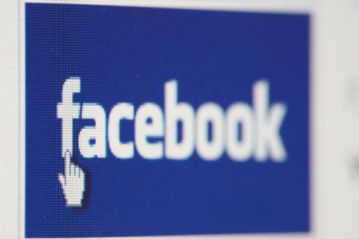The 'unselfie' – bucking the selfish trend

In the lead up to Christmas, users of social media were encouraged to post an unusual photo of themselves online.
Instead of a self-portrait, or a 'selfie', people were asked to write the name of a charity they support with the hashtag '#unselfie' on a piece of paper held up to cover their face.
It took place to promote 'Giving Tuesday' on December 3, which focused on how individuals could volunteer and help out in their communities. The idea was to encourage thinking about giving back during a season so often consumed by materialism and spending far more on consumer goods than can often be afforded or even needed.
The unselfie was promoted by hundreds of charities including The Salvation Army and the Baptist Mission Society, and sparked a huge response, with thousands of people posting about their volunteering on Facebook, Twitter and other online platforms. It revealed the value of social media, and its ability to encourage positive action and social change.
The initiative hoped to stand against the culture of self-promotion, and provided an interesting take on the selfie trend. Though mostly harmless and a bit of fun, Christian Today recently considered how the obsession with how we are perceived online is affecting our sense of real community.
As we are absorbed by the allure of our screens, are we losing the ability to connect with those around us?
This is what made the unselfie so refreshing. It demonstrated the real things that people are doing to help in their communities - that people are getting out there, helping where they can and actively seeking to bring transformation and change where it is desperately needed. In other words, people are doing things that put others in the frame.
Though some might argue that the act of taking a photo to share your good deed in itself might be a form of self-promotion, philanthropy expert Matthew Bishop, who created the unselfie movement, disagrees.
"The unselfie is emphatically not about showing off or advertising how virtuous you are being," he recently wrote on his LinkedIn page.
It is "a way of saying, this cause is important to me—and seeing that, the people who take an interest in you may be inspired to look more deeply into the causes you support, or to think about, and hopefully unselfie the causes that matter to them", he says.
"The unselfie is worth doing because it can tap into the power of social media to inspire others and motivate ourselves by sharing our passions publicly."
It is that passion for others and for needs beyond ourselves that is so often missing in the deluge of me-driven social media posts and charities face the challenge of translating a 'like' into more tangible support.
Although 'liking' causes on Facebook has become commonplace among users, many charities are a drop in real donations. It's even accrued its own name: slacktivism.
In a series of studies last year, scientists found that public declarations of support for a cause or organisation, such as clicking 'Like' on Facebook, actually made people less likely to donate money to that charity later on. It seems that many of us have taken on a mantra of 'looking good is better than doing good'.
The unselfie movement hopes to buck that trend, giving us the opportunity to use our online profiles to share our passions, and find things we believe are worth supporting.
In 2012, donations tracked on #givingtuesday increased by 50% from the previous year and average gifts increase by 25%, and it is hoped that even more money was raised in 2013.
The unselfie is a welcome altruistic take on the selfie trend, and one that will hopefully inspire more of us to give back, share generously with our communities, and think about the things that matter more than how we look.











